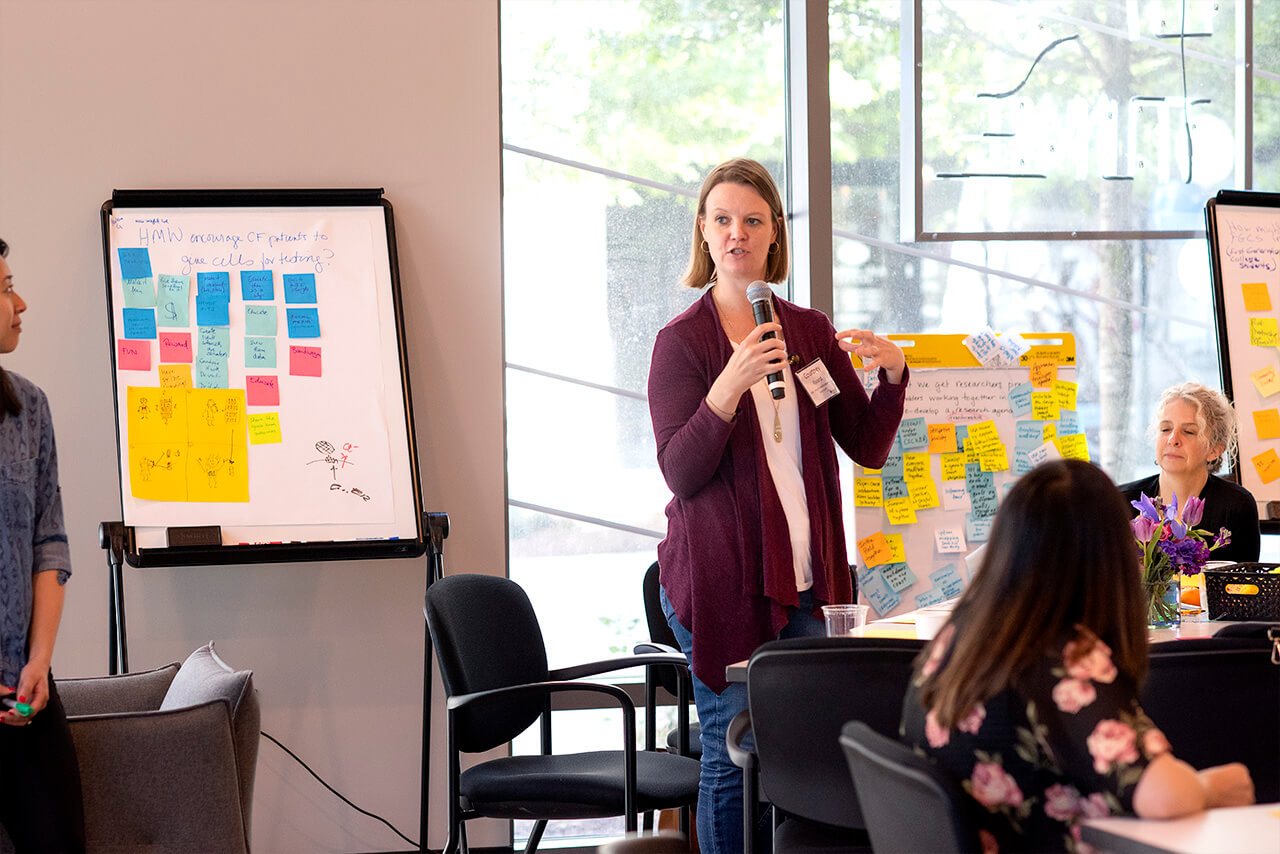

Courtney Rivard is a teaching associate professor in the Department of English and Comparative Literature who launched a gaming-centered classroom, the first of its kind of the University, in early 2020.

Courtney Rivard is a teaching associate professor in the Department of English and Comparative Literature who launched a gaming-centered classroom, the first of its kind of the University, in early 2020.
1. What’s the biggest misconception about innovators or entrepreneurs?
Before I attended the Faculty Innovation Workshop, I wouldn’t have classified myself as an innovator or entrepreneur in any way. I think that some people believe you have to have a pie-in-the-sky idea where you’re working nights in your garage. But sometimes, innovation is fixing a problem that’s interesting. Or it’s taking an opportunity that is presented to you and pushing it a little bit. To me, that’s what innovation is… thinking differently and pushing a bit. Not necessarily having a giant idea that’s going to revolutionize humankind. Also, a lot of faculty and researchers at UNC may not even know about all the opportunities that the University provides to help us think differently. Innovate Carolina has all these resources that, before I took the workshop, I wasn’t aware of.
2. Describe a time you took a risk.
Creating the Greenlaw Gameroom is one of the riskiest moves I’ve made. It really put me outside my comfort zone in terms of teaching and research. While I had always been interested in gaming, I’d never thought about making it a focal point of my work. And when I moved into the director role of the Digital Literacy and Communications Lab, students came in with ideas about gaming and the humanities. Gaming felt new and different. With the help of the Lenovo Instructional Innovation Grant via the Center for Faculty Excellence (CFE), the risk paid off.
Once you start talking to others and envision possibilities, you find more opportunities to connect with people from different disciplines who have new ideas. It’s been an amazing opportunity to take that risk and try to reach out and find people who are also interested in thinking a little bit differently. We’re pushing the boundaries of what it means to teach in the humanities.